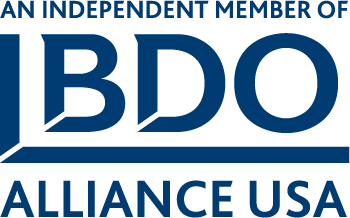The IRS has granted relief by providing a waiver on estimated tax underpayment penalties incurred solely as a result of certain excess business loss related payments for tax years beginning in 2019. The relief is available to individuals, as well as trusts and estates that are treated as individuals for estimated tax payment penalty purposes.
Noncorporate taxpayers may not deduct excess business losses for tax years beginning after December 31, 2020, and before January 1, 2026. Instead, they must treat such losses as a net operating loss (NOL) carryforward to the following tax year (or carryback for farm losses). The excess business loss limitation was put in place for tax years starting after 2017. However, the CARES Act postponed the application of the excess business loss rules to tax years beginning after December 31, 2020 and modified the NOL rules by providing a five-year carryback for NOLs arising in tax years beginning after December 31, 2017 and before January 1, 2021.
CARES Act Changes. An individual taxpayer may have underpaid one or more installments of estimated income tax for the 2019 tax year if the individual taxpayer anticipated having a lower required annual payment after utilizing an NOL carryover attributable to a prior year excess business loss. Before the enactment of the CARES Act, this loss would have been available as an NOL carryover to reduce taxable income in the tax year that began in 2019, but now is no longer available due to the CARES Act amendment. Taxpayers may elect to forgo the new five-year carryback of such NOLs. In the absence of an election, taxpayers may have underpaid one or more installments of estimated income tax.
Excess Business Loss. Excess business loss is defined generally as the excess of the aggregate deductions for the tax year attributable to trades or businesses of a non-corporate taxpayer, over the sum of (1) the aggregate gross income or gain for the tax year attributable to such trades or businesses of such taxpayer, and (2) $250,000 ($500,000 in the case of a joint return) subject to adjustment for inflation for tax years beginning after 2018. An excess business loss is determined without any deductions, gross income, or gains attributable to any trade or business of performing services as an employee.
Relief Available. The relief is only for estimated tax income tax installments due on or before July 15, 2020 for a tax year that began in 2019. Certain requirements must be met to obtain potential relief. The qualification requirements for taxpayers that must be met include the following:
- a 12-month tax year,
- timely filed 2018 and 2019 tax returns,
- completion of the underpayment of estimated tax forms and calculations for tax year 2019, and
- complete and submit a waiver request.
We can help you review your 2019 tax return to determine the impact of an excess business loss and related underpayment penalties. Give the Crosslin tax team a call at 615-320-5500. We are here to help!
.







